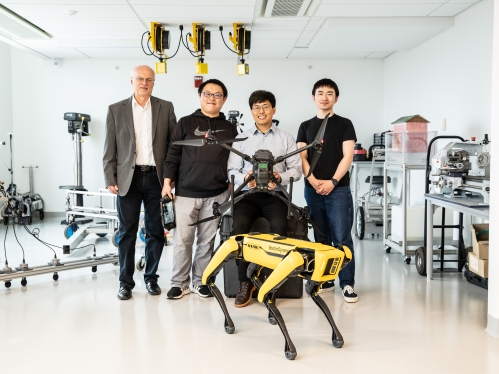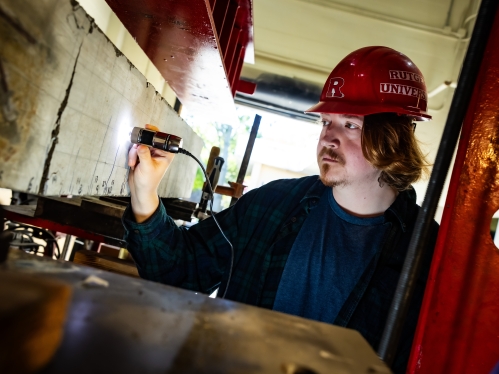Graduate Program in Civil and Environmental Engineering
Overview
Ranked among the top 50 in the nation by U.S. News & World Report, the Department of Civil and Environmental Engineering graduate programs offer a pathway to success. The department is among the oldest engineering departments in the nation, having been established in 1864. Our long history has brought recognition in infrastructure evaluation and monitoring, intelligent transportation systems, transportation design and planning, geotechnical and geoenvironmental engineering, pavement engineering, construction management, water resources management, and air pollution monitoring and control.
Graduate students can pursue degrees in Civil and Environmental Engineering and Environmental Engineering at the master's and doctoral levels.
Master's and Doctoral Degrees in Civil and Environmental Engineering are offered by the School of Engineering.
Master's and Doctoral Degrees in Environmental Engineering are offered between the School of Engineering and the School of Environmental and Biological Sciences.

Graduate Degrees
We offer graduate degrees that reflect individual student goals from career advancement to research intensive.
Master of Science Degree
This degree provides advanced training in critical areas of civil and environmental engineering: construction engineering and management; geotechnical engineering; structural engineering; transportation and infrastructure engineering; and water resources and environmental engineering.
Doctoral Degree
This degree trains students at the highest level to assume leadership roles in technical fields in construction engineering and management; geotechnical engineering; structural engineering; transportation and infrastructure engineering; and water resources and environmental engineering – and prepares graduates for careers in academia, industry and engineering firms, and the public sector.
BS/MS Accelerated Degree
The goal of the CEE BS/MS is to allow academically qualified students to receive the BS and MS degrees in a shortened time frame. This highly intensive academic program gives students more research experience and better prepares them for research and development careers or further graduate study.

Research
The CEE Department has research thrusts in key areas related to civil and environmental engineering including construction management and engineering, geotechnical engineering, transportation engineering, water resources and environmental engineering. Both the curriculum and advanced laboratories and equipment are designed to support research focus areas and prepare students for dynamic careers.
Our faculty members are committed to research, often in collaboration with industry and other disciplines, to advance the state of knowledge and practice in our field.
The Department also includes the Center for Advanced Infrastructure and Transportation (CAIT). Since 1998, CAIT has been a University Transportation Center (UTC)—an elite group of academic research institutions sanctioned and supported by the U.S. Department of Transportation. It was named one of only five National UTCs in 2013 and selected to lead the Region 2 UTC in 2018.

Faculty
Many of the faculty members hold positions of responsibility in national and international engineering organizations, and serve on advisory councils and commissions on the local, state, and federal level. They are leaders in their fields in structural, construction, transportation, environmental, and geotechnical engineering. The department includes 12 full-time faculty.





Civil & Environmental Engineering Graduate Program Office
Hao Wang, PhD
Professor and Graduate Director
Richard Weeks Hall of Engineering, Room 428E
Busch Campus
848-445-2874
hwang.cee@rutgers.edu
Gina Cullari
Administrative Assistant
Richard Weeks Hall of Engineering, Room 304
Busch Campus
Phone: 848-445-2232
gcullari@soe.rutgers.edu
